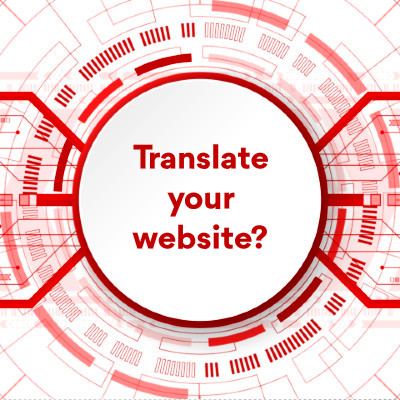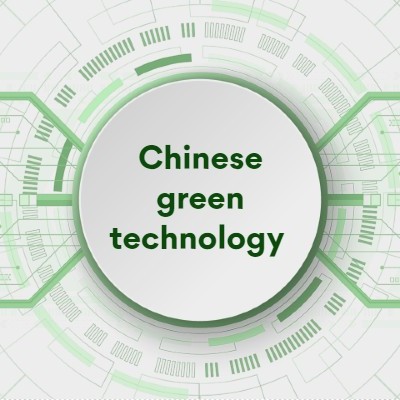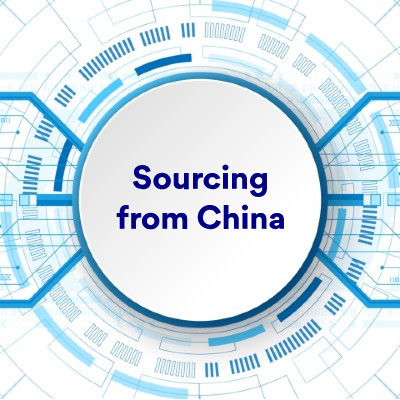


Should you translate your website into Chinese?
We recommend that you should not translate your website for Chinese markets;
- Your business website needs to remain foreign-looking, so you must convey confidence that your products and services are genuine.
- The overhead of translating your website into Chinese will be high, and ongoing maintenance will slow down adding and updating information.
- Chinese people reading your website can and will use translation options in their browsers to translate your website as and when required.
- We do recommend translating the SEO data into Chinese.
Summay of options
Do Nothing

No change
None
Add an information page in Chinese to your existing website.

It gives the Chinese an insight into your business and increases your Chinese search engine ranking.
A day work
SEO data translation. For more information, Chinese SEO

Increase your Chinese search engines ranking
A few days of work and ongoing maintenance.
Multi-media translation, e.g., Subtitles, etc.

It allows a better understanding of your media content
A few days’ work
Essential products and services translation

Increase your Chinese search engine ranking.
A few days’ work and ongoing maintenance
Create marketing website and point it back to your local internet contents

Active feed for the Chinese search
One week's work and on-going maintenance
Add a search engine results page (SERP) for web admins in Chinese.

Increase your Chinese search engine ranking.
A few days of work and ongoing maintenance.
Multi-media translation, e.g., Subtitles, etc.

It allows a better understanding of your media content
A few days’ work
Essential products and services translation

Increase your Chinese search engine ranking.
A few days’ work and ongoing maintenance
Create marketing website and point it back to your local internet contents

Active feed for the Chinese search
One week's work and on-going maintenance
Create marketing website and point it back to your local internet contents

Active feed for the Chinese search
One week's work and on-going maintenance
Fully translate your website

Increases your Chinese search engine ranking’s
One month's work and high on-going maintenance
Chinese language Background
The Chinese language is among the most confusing subjects in publishing/selling on the Chinese market.
Chinese different language types
For the basis of trading in China, there are three groups of languages:
- Local language—Most cities/regions have a local language. In most cases, this is not a regional dialect. It is a language in its own right. People between cities/regions will not understand each other’s languages.
- Mandarin is China's primary language. The emperors started using a single Chinese language, which Chairman Mao fully implemented. “One country needs one common language." Mandarin was used as it was already the language of government.
- Hong Kong, Taiwan, and many southern Asian areas use traditional Chinese as their local language, e.g., Cantonese and Taiwanese. These two languages share a common written language but are spoken differently in Hong Kong and Taiwan.
Cantonese is spoken in areas where Chinese people emigrated before the 1930s, such as California, USA.
Most people in China speak Mandarin, their local language and in increasing numbers, English as part of their international language education at school and college. It is estimated that more than 100 million people are learning English in any given year.
There are three forms of written Chinese language, partly covered in the above:
- Traditional Chinese – The original written language of China. The handwriting of the Traditional Chinese language is an art and takes many years to perfect.
- Simplified Chinese – is the written language of China.
- Romanisation systems—Many ways have been developed for writing Chinese characters in Latin (European). A keyboard for 2,000+ Chinese characters is impractical.
The internet has adopted Pinyin, the standard used by most Chinese people under 40. If you were schooled over 35 years ago, you would have been taught one of the other systems (like Pinyin).
Pinyin enables you to type in Latin characters and select the appropriate Chinese Character from a drop-down list on your PCs, mobiles, etc. While this may sound like slow typing, it is speedy, possibly faster than typing English. To learn more about Pinyin, there is an excellent summary on the BCC website.
Automatic translation to Chinese
Most browsers have a built-in APP to translate internet content.
Chinese people are not put off by internet content in a foreign language. The translation software used in China, browsers, mobiles, etc., has been developed to translate Chinese to and from most international languages.
Whatever languages are on your internet site, do not use automatic translation. The Chinese reader will not know that they are reading an automatic translation. Your Chinese reader will see poor translation content, reflecting poorly on your company.
The Chinese reader will use an automatic translation when needed, e.g., Baidu automatic translation. In doing so, the Chinese reader will know that the Chinese language presented has been automatically translated and does not reflect poorly on your company.
If time and resources allow, have a Chinese speaker read your internet content in Chinese using Baidu's automatic translation. Check for any significant issues in the automatic translation of Chinese. When major translation issues are identified, consider changing your local language content (often, the problem is in error in the original language).
Automatic translation will not help your ranking in the Chinese search engines.
Who do you use to translate?
Word-for-word translation can give you a technically correct but meaningless description of your business, products, and services.
Many Chinese people will not necessarily understand your business. When translating, it may be a word-for-word translation and will not reflect your business correctly "Lost in Translation."
We recommend using a translator from your own country. Many colleges and universities produce good Chinese speakers who will better understand your business and give you a better translation.
Chinese language translation options
- Do nothing – No Chinese translation
Leave your website in your local language. The two internet languages used in China are Chinese and English. Your website content is not in English or Chinese, except for very little internet traffic from China.
If your internet content is in English, then except, provided your Chinese search SEO is set up, to receive internet traffic from China.
- Automatic translation automatic translation – Automatically translate your website pages using software like Google Translation
Automatic translation can be inadequate. The Chinese reader will not know it is an automated translation and reflect poorly on your business. Let the Chinese read and use their local automatic translation software. Any errors created in the translation will be known to be an issue with the translation software and will reflect poorly on your business content.
For more information, please see the Automated translation into Chinese.
- Create a Chinese page – An additional description of your business in Chinese
Add a page to your internet content, a “Welcome Page” in Chinese that explains the critical elements of your business.
Provided the Chinese SEO data has been created, this will help your website be indexed in Chinese search engines.
- Translate your SEO data into Chinese
Create a copy of your website and translate the SEO data.
Combined with a Chinese domain and your internet content hosted in China / Asia, this should increase your Chinese internet traffic speed.
For more information, please see the Chinese SEO.
- Chinese search engine SERP
Like Google's rich text, Baidu's Search Engine Result Page (SERP) greatly supports your search engine ranking.
- Multi-media translation
If your business has multi-media, add Chinese subtext, etc.
While automatic Chinese translation will work on your internet content text, it does not work on spoken words and, in the main, not on multi-media content.
We recommend adding video subtitles to your website to help the Chinese search engines understand your business.
- Key product and service translation
The translation of your essential internet products and services.
Beneficial approach when promoting an essential business activity. A translation is also required if you are using Chinese e-Malls.
For more information, please see the Chinese SEO.
- Chinese marketing website
Create an internet marketing brochure in Chinese and link the essential products and services in the Chinese content to your overseas pricing / online cart.
This approach is far better than creating a complete translation of internet content, provided you keep the descriptions to the minimum to avoid generating a significant overhead in translation maintenance.
- Full translation of your internet contents
This option is not recommended unless you have an existing customer base in China that demands a site in Chinese.
Remember that Chinese users have an automatic translation option in their browsers.
Chinese Social Media
Chinese social media are the exception to the above options.
Chinese social media content is usually entered in Chinese. You can enter your content in your local language. However, there is no method in Chinese social media platforms for Chinese users to automatically translate content from their local language into Chinese. Using your local language in Chinese social media will significantly reduce the opportunity for your content to be followed.
Last modified:v2.1 - July 2024











